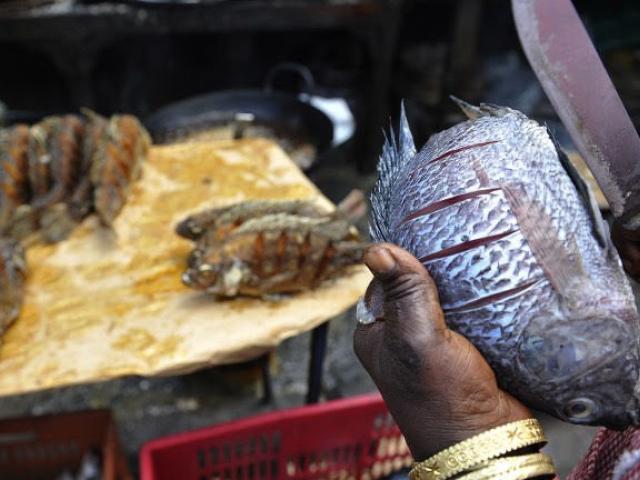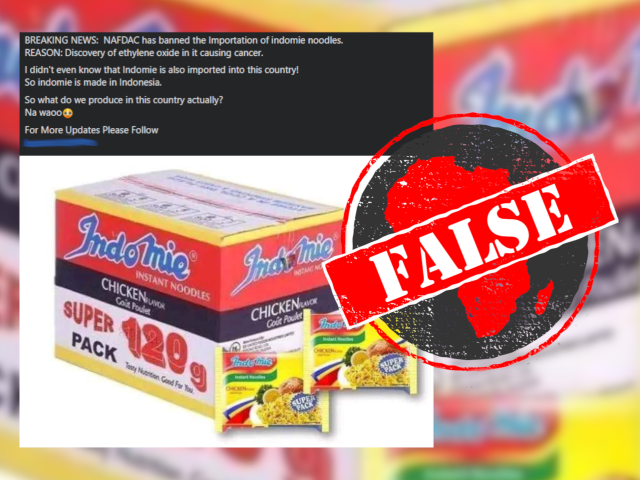-
While urging farmers to produce more, Ruto's claim that the government spends KSh500 billion a year on food imports is incorrect.
-
The latest data from the Kenya National Bureau of Statistics puts the figure at KSh253.7 billion in 2022, the highest in the last five years.
-
In the six months leading up to the 2023 harvest season, the country spent KSh174.6 billion on food and beverage imports.
With a restive population worried about soaring food prices in Kenya, president William Ruto hopes that increased food production will bring down prices.
The harvest season for maize, the country’s staple food, began in July 2023 and is expected to last until December. The government is predicting a bumper harvest.
Ruto’s government has provided subsidised fertiliser and banned imports of maize and wheat to protect both farmers and its foreign reserves.
Artificial intelligence tools used by Africa Check to monitor the public debate on food imports, flagged a claim from a story on Capital News, a Kenyan news website.
The story, published on 10 September 2023, said that while at a church function in Meru county, 277 kilometres north-east of the capital, Nairobi, Ruto urged farmers to produce more.
“Tunataka kutumia kilimo ya Kenya kuzalisha chakula. Vyakula vyote. Badala ya kuagiza na kutumia bilioni mia tano kila mwaka,” he said in Kiswahili, according to footage of the event.
This translates to: “We want to use agriculture to produce food for Kenya … all kinds of foods, instead of importing it using KSh500 billion every year.”
Does Kenya spend that much – US$3.3 billion – on food importation, which Capital News described as “staggering”? We checked.
Imports from more than 120 countries
For data on food imports, Benson Karugu, a statistician at the Kenya National Bureau of Statistics, directed us to its annual economic survey.
Kenya’s imports include cereals, fats and oils, sugar and grains, according to the latest survey. Vegetables, fruit, coffee, tea, meat, milk, eggs, and alcoholic and soft drinks are also on the list. The country produces many of these, but not enough to meet its needs.
Kenya’s imports come from more than 120 countries, according to the World Integrated Trade Solutions dashboard run by United Nation agencies and the World Bank, among others.
According to the survey, the country’s imports were valued at KSh2.49 trillion in 2022. Of this, the value of food and beverages was KSh253.7 billion.
The statistics bureau also publishes quarterly data on imports and exports. Between January and March 2023 Kenya imported food and beverages worth KSh80.2 billion.
The latest data shows that the import bill rose to KSh94.4 billion between March and June.
The country’s food and beverage import bill for the first half of 2023 was therefore KSh174.6 billion, even before the harvest season.
With a ban on imports of the staple maize, and even with a bumper harvest, it is unlikely that the figure will reach KSh500 billion for the year – unless the local currency weakens dramatically.
In fact, the annual import bill for food and beverages has not exceeded KSh253.7 billion over the past five years, as the table shows.
|
Year |
Value (KSh billions) |
|
2022 |
253.72 |
|
2021 |
212.79 |
|
2020 |
176.31 |
|
2019 |
186.76 |
|
2018 |
176.15 |
Sources: Annual economic survey 2018 & 2023 for food imports, Kenya National Bureau of Statistics
We therefore rate the claim incorrect.








Add new comment